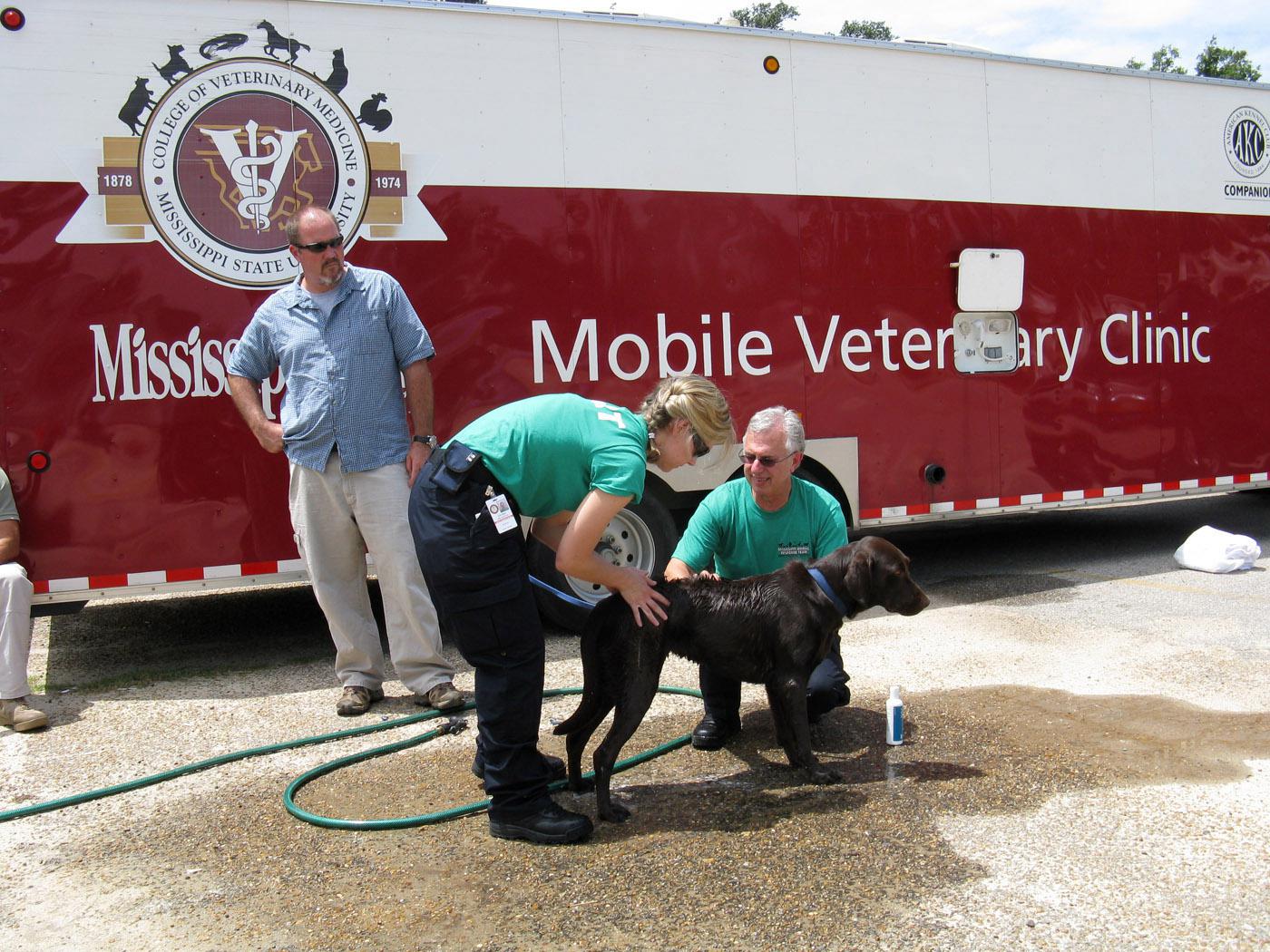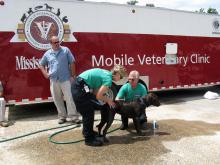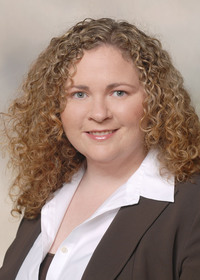Information Possibly Outdated
The information presented on this page was originally released on July 23, 2009. It may not be outdated, but please search our site for more current information. If you plan to quote or reference this information in a publication, please check with the Extension specialist or author before proceeding.
Conference security dogs get support from CVM
MISSISSIPPI STATE – The top-notch security team at the National Governors’ Conference includes canine members, and Mississippi State University’s College of Veterinary Medicine was on hand to lend them support.
CVM’s Disaster Animal Response Team works with the Mississippi Board of Animal Health’s Mississippi Animal Response Team to provide emergency care and services to animals around the state. The team gives support to companion animals and sometimes livestock during and after disasters such as hurricanes. They also participate in large events involving pets or livestock.
CVM’s team, along with several private veterinarians on the Board of Animal Health’s team, were sent to the 101st National Governor’s Conference held in Biloxi last weekend. Members of the CVM team included Dr. Carla Huston, Dr. Phil Bushby and fourth-year veterinary students Katie Ebers and Shannon Vawter. Veterinary technician Terri Snead provided logistical support leading up to the event and throughout the deployment.
The group set up a veterinary staging area in the Mississippi Gulf Coast Coliseum along with the Mississippi Department of Health and other state agencies. The staging area included the CVM mobile veterinary clinic, which was available to support state and federal law enforcement working dogs from across the country involved in securing the event.
“Our team has been involved in various training and deployments over the past several years, so we were ready for this event,” said Huston, CVM associate professor and the Mississippi Animal Response Team’s Veterinary Services branch director.
Security dogs from around the country were brought in for the conference and they had to work in hot conditions. The team was ready to assist in case of any emergencies.
“We were prepared to respond to any issues such as heat stroke or chemical exposure. Sometimes, the hot weather can cause skin and ear problems, so we were also ready to deal with that,” Huston said. “There were no emergencies, but we did provide services to several working dogs with general health conditions.”
The team continues to prepare for future events and possible emergencies.
“Participating in events such as the conference helps us further prepare for what might be down the road,” Huston said.
Writer: Karen Templeton






